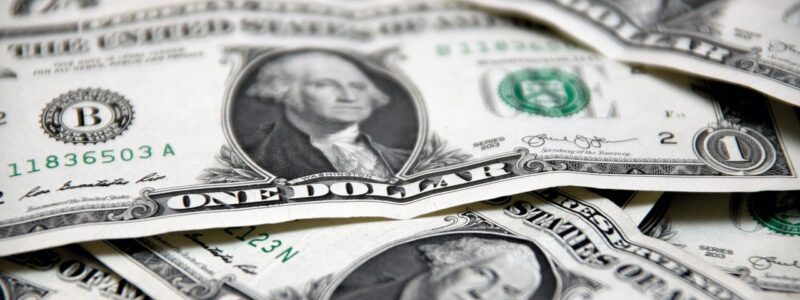
The U.S. dollar is getting stronger against the euro and the pound sterling after declining in the previous session, but it keeps getting cheaper in pair with the yen.
The ICE index showing the dollar’s movement against six currencies (euro, Swiss franc, yen, Canadian dollar, pound and Swedish krone) is gaining 0.16%, while the broader WSJ Dollar Index is 0.12%.
The ICE dollar index fell sharply Thursday after the release of U.S. inflation data, near its lowest level in seven months.
U.S. consumer prices (CPI) rose 6.5% in December compared to the same month last year, the nation’s Labor Department said Thursday. Thus, inflation slowed from 7.1% in November to its lowest level since October 2021. Consumer prices fell 0.1% from the previous month, the first month-over-month decline since 2020.
Traders believe the Federal Reserve (Fed) may slow the pace of prime rate hikes to 25 basis points at its next meeting due to slowing inflation, Trading Economics noted.
The euro/dollar pair is trading at $1.0840 as of 8:00 a.m., up from $1.0854 at the close of the previous session. The pound/dollar exchange rate dipped to $1.2182 during trading on Friday from $1.2212 the day before.
On Thursday, the dollar depreciated by 0.9% against the euro and by 0.5% against the pound.
The value of the American currency in pair with the yen continued to decline on Friday after a 2% decline the day before.
The exchange rate of the dollar fell to 129.19 yen during the trading session, compared to 129.3 yen at the close of the previous one.
JPY was supported by the report of the Japanese newspaper Yomiuri Shimbun that the leaders of the Bank of Japan plan to discuss the unintended consequences of their approach to the monetary-credit policy at the meeting that will be held on January 17-18.
According to the newspaper, the Japanese Central Bank will consider adjustments to monetary policy, including by changing the conditions of the bond purchase program to “reduce its negative impact.
Experts interrogated by Bloomberg expect that the Japanese Central Bank will pass to toughening of monetary policy earlier than it was supposed before.
Almost all respondents of the agency forecast that the Bank of Japan won’t change the main parameters of its policy next week. At the same time 38% of respondents expect its adjustment either in April or in June.